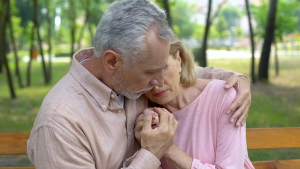Hearing the news you or a loved one has cancer can stir a range of emotional responses. While some people feel shock, disbelief and anger, others may experience sadness, fear and a sense of loss. Cancer support groups are designed to help people cope with all aspects of cancer diagnosis by providing a safe environment to share experiences and learn from others who are facing similar obstacles. Explore how joining a cancer support group could have powerful benefits on the success of treatment and recovery.

1. Provides Cancer-Specific Focus
How a person deals with cancer diagnosis depends on everything from the type of cancer to his or her age and stage of life. The focused nature of cancer support groups allows you to connect with other people who can relate to your situation and are navigating the same day-to-day challenges. Types of support groups include:
- Cancer-specific support groups, including support groups specifically designed for those facing breast, blood, colorectal, esophageal, gynecological cancers and other types of cancer.
- Advanced or recurring support groups for anyone whose cancer has progressed to stage IV or their cancer has returned after treatment.
- High-risk cancer support groups to support and education women who are at high risk for breast or ovarian cancer.
- Adolescent and young adult cancer support groups to address the unique challenges associated with AYA cancer and age-related development.
2. Comprehensive Emotional, Social & Educational Support
Cancer support groups offer a blend of emotional, social and educational support to guide those going through cancer treatments, as well as cancer survivors, through all phases of care. Support groups are run by licensed social workers and nurses with expertise and training in helping patients and families cope with adjusting to cancer. Topics cover everything from strategies for dealing with fatigue, isolation and concerns about the future to open-forum discussions on personal struggles and achievements.
3. Leads to Greater Quality of Life
Many studies have shown that support groups can improve quality of life for people dealing with a cancer diagnosis.
In fact, support groups have been known to reduce anxiety and stress, emotional distress and depression, fatigue and the experience of pain, as well as to improve mood, self-image, ability to cope with stress, sexual enjoyment and overall feelings of control.
4. Continues Support Post-Treatment
Surviving cancer is the best possible outcome. Support can be just as important during treatment and recovery as it is once the cancer is gone, when a new set of challenges may emerge. During recovery, joining a cancer survivorship program can help equip you with the resources and support to navigate your new normal. Post-treatment support connects you with others who are coping with similar hurdles, such as possible infertility issues, insurance/financial issues and re-entry into the workforce.
5. Extends Support to Loved Ones 
Support groups are also offered to caregivers, family members and friends who may need encouragement while learning to cope with the diagnosis of a loved one. Caregiver support offers open discussion, as well as educational information to help with practical advice and guidance from both healthcare professionals and other caregivers.
Whether you are facing a new diagnosis or dealing with the diagnosis of a loved one, you are not alone.



